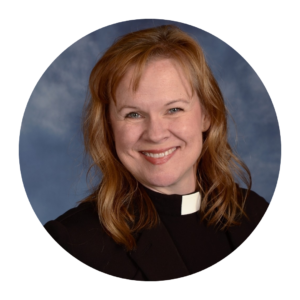In my years serving in ministry, I have met with people who wanted to discuss feelings of guilt. Even more so, people have wanted to discuss feelings of shame. The words guilt and shame are not synonyms. They are profoundly different realities that are often addressed in religion, and it helps to understand what they are.
Because we are human beings, guilt and shame make up some of the emotions all of us feel, whether we consider ourselves religious people or not, just like we all feel some combination of happiness, sadness, anger, fear, etc. Religious systems discuss human realities, including internal realities, so of course these emotions make up part of that discussion.

Discover COMMUNITIES hosted by our PLW experts and surround yourself with like-minded individuals looking to live a peace infused, healthy life.
What is guilt?
Guilt is an appropriate, natural occurrence we feel when we have hurt someone. Those relatively few people who never feel guilt might be diagnosed as sociopaths. Because all of us make mistakes from time to time, and most of us feel empathy for others, we have the ability to reflect on our mistakes and feel the resulting guilt. As a pastor, I sometimes discuss the wrongs we do to others, which the church calls “sin,” which leads to guilt.
Someone might say that even discussing guilt is a negative orientation toward life, and I would wholeheartedly agree if this was the majority of what was discussed. In my work, 95% of what I discuss, teach, analyze, and hope to live are the positive experiences of love, joy, freedom, hope, faith, and peace. However, even while we humans try to hide our guilt, the conscience we each possess reminds us of the harm we sometimes cause one another.
In our church, we do not have a practice of individual confession, although that is an option if that seems therapeutically beneficial. We do, however, practice communal confession most Sunday mornings at the beginning of worship services. This has been done since ancient times. This is not for people to feel they are bad and sit in self-condemnation. On the contrary, it is for people to let go of the burdens that have been weighing on them throughout the week. They hear from me that God entirely forgives all of their sin.
Forgiveness is a huge theological topic, and is central to Christian theology. This does not mean that people are expected to go on hurting others and not learning from the harm done. The hope after communal confession and pronounced forgiveness is that all of our resulting guilt can be let go and we can proceed with relief, gratitude, and happiness.
What is shame?
Guilt is a periodically appropriate response; shame is not. Guilt speaks of reality, but shame tells a lie. Guilt tells us when we have done wrong, but shame tells us we ARE wrong. There exists a vast difference between these two concepts. However, people sometimes feel them both, and often confuse them.
Jesus addressed both guilt and shame quite frequently. When people were hurting others, Jesus had no problem telling people to knock it off. He forgave sin and spoke of forgiveness. He asked people to extend forgiveness to one another. He did not seem to hold people’s actions, even big errors, against them. He was always offering new life, fresh starts, and abundant love.
As for shame, he exposed it as the lie that it is. Whenever people tried to make someone feel bad about who they were, Jesus supported the one being shamed and told the one doing the shaming to stop immediately. Jesus did not hold people’s truest self against them. He loved, supported, and affirmed people far beyond the boundaries of most people’s comfort levels or societal “acceptability.” He noticed people who were shamed in their particularities, for example people with disabilities, those of other cultures and religions, prostitutes, lepers, and tax collectors. No label, reputation, or social status was enough to make Jesus withhold his love. He saw all as inherently worthy, beloved, and good at their core.
Why has the Church ever shamed people?
In its thousands of years of history, the Christian Church has sometimes gotten things dramatically wrong. It has also gotten things magnificently right, as it fed people who were hungry, housed people who were homeless, loved, affirmed, and assisted millions. But that does not excuse the immense harm done to people under the banner of the Church. Wherever shame was passed down from clergy or church participants, that was religion-done-badly. It was a wild departure of what Jesus himself would have wanted.
People sometimes shame people because they have been shamed, and they pass on the toxic behavior they know. Abused people grow up to be abusers if not educated and healed. People also shame people to control them, to make them into a different version of humanity. Regardless of the reasons behind why people do this, inside or outside of any institution, shaming people was, is, and will always be wrong. We in the Church must do much work to help heal some of the harms that toxic religion has perpetuated.
In his influential book, Healing the Shame that Binds You, John Bradshaw explains, “When our instinctual life is shamed, the natural core of our life is bound up. It’s like an acorn going through excruciating agony for becoming an oak, or a flower feeling ashamed for blossoming.” I have met with and heard from many members of the LGBTQ community who have felt that the Church has told them they cannot be their authentic self. Jesus would not have passed on that message. In fact, that is the opposite of what he said and did. No system of shame or supremacy – racism, sexism, homophobia, xenophobia, etc. — fits with what we know of Jesus. THIS is what we must confess as sin. We must ask for forgiveness and strive to do better. Jesus lived a life of love and told people to do the same. The lie of shame has no place in the life of a Christian. We must not pass shame on to others.
Now the call is for healing for the many, many people who have felt shamed by some aspect of the Church. We don’t readily see it, but shamed people are the “walking wounded” all around us. Bradshaw states about shame’s victims: “There is no way you can share your inner self because you are an object of contempt to yourself. When you are contemptible to yourself, you are no longer in you. To feel shame is to feel exposed in a diminished way. When you’re an object to yourself, you turn your eyes inward, watching and scrutinizing every minute detail of behavior. This internal critical observation is excruciating. It generates a tormenting self-consciousness… This paralyzing internal monitoring causes withdrawal, passivity and inaction. The severed parts of the self are projected in relationships.” Shame is destructive to everyone.
Do the concepts of guilt and shame have any part to play in religion? Absolutely. Guilt stems from our actions, and has been forgiven. This is the “amazing grace” of which we sing.
Shame is a lie. It is violence against a person passed on through words and actions, based on a false premise of unworthiness. Its painful lie exists in the minds and hearts of people all around us. It can be healed, but first must be exposed to the light. May we who consider ourselves religious be a part of recognizing, naming, and healing that shame for so many, and may we first commit to doing no further harm.

STEPHANIE LAPE
Stephanie Lape is a pastor in the Evangelical Lutheran Church in America (ELCA).
She holds a Master of Arts degree in Transpersonal Psychology (the psychology of religious experience) from the Institute of Transpersonal Psychology, and a Master of Divinity degree from Luther Seminary. A long-time professor of comparative religions and former campus minister, she now serves as pastor at Eden Lutheran Church in Riverside, California.
Stephanie speaks and teaches on matters of spiritual and psychological development, biblical studies, the enneagram personality tool, and comparative religions. She is an active advocate for interfaith and ecumenical studies. She has taught classes on major religious movements in churches, schools, and city programs, while also leading tours and guest speaking at mosques, synagogues, and temples. Stephanie is honored to be a speaker at the 2021 and 2023 Parliament of the World’s Religions.
She also loves to write. Stephanie is a contributing author for Living Lutheran Magazine and author of Beckoned: Hearing God’s Call to Deeper Faith, which is both a travelogue of her own winding spiritual journey, as well as a guide to help people discover their own path. She lives with her husband and two children in Southern California.




2 Responses
A much-needed clarification of a distinction the Church has been too slow in communicating. Thank you for your wisdom and your pastoral care, rooted in the good news of our loving God.
Thank you very much, Doug. I appreciate your comment. I agree that the Church has been far too slow in communicating this distinction.